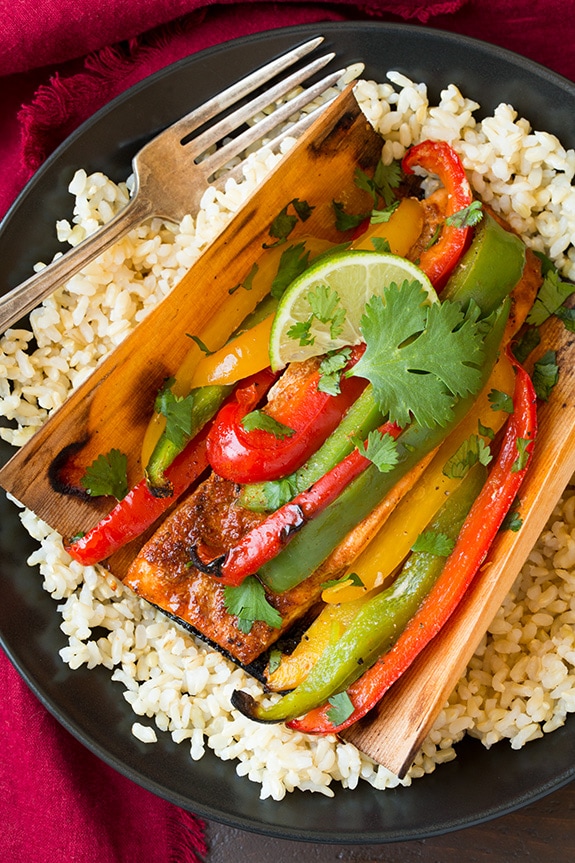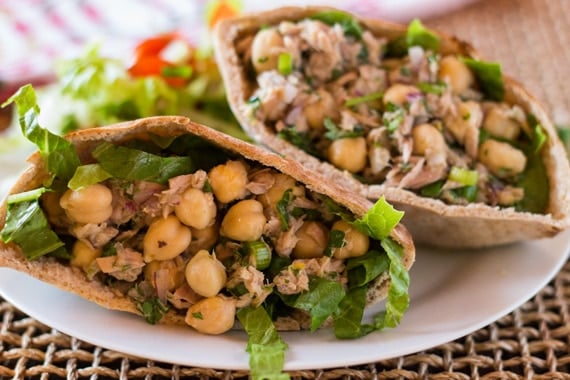The Excuse of the Millennium: “I’m sick” (we mean literally)
Here are a bunch of foods that you HAVE to include in your
diet to avoid the common ailments and if you can’t include them in your daily
diet then supplements will do the job.
Vitamin C
You probably know about vitamin C’s connection to the immune
system, but did you know you can get it from much more than just citrus fruits?
Leafy green vegetables such as spinach and kale, bell peppers, brussels
sprouts, strawberries and papaya are also excellent sources. In fact, vitamin C
is in so many foods that most people may not need to take supplements unless
a doctor advises it.
Vitamin E
 |
| http://www.cookingclassy.com/wp-content/uploads/2015/06/chipotle-rubbed-salmon-wtih-bell-peppers-in-cedar-paper-srgb..jpg |
Vitamin E
Vitamin E can be a powerful antioxidant that helps your body
fight off infection. Almonds, peanuts, hazelnuts and sunflower seeds are all
high in vitamin E. So are spinach and broccoli if you prefer to increase your
intake through meals rather than snacks.
 |
| https://tastespace.files.wordpress.com/2010/09/dsc_2509-1porn.jpg |
Vitamin B6
Vitamin B6 is a part of nearly 200 biochemical reactions in
your body and is critical in how your immune system functions. Foods high in
vitamin B6 include bananas, lean chicken breast, cold-water fish such as tuna,
baked potatoes and chickpeas.
 |
| http://www.foolproofliving.com/wp-content/uploads/2013/05/Tuna-and-Chickpea-Pita-Bread-Sandwich.jpg |
Vitamin A
Foods that are high in colorful compounds called carotenoids
— carrots, sweet potatoes, pumpkin, cantaloupe and squash — are all great
options for Vitamin A. The body turns these carotenoids into vitamin A, and
they have an antioxidant effect to help strengthen the immune system against
infection.
 |
| http://www.gaiahealthblog.com/wordpress1/wp-content/uploads/2013/04/Moroccan-Spiced-Roasted-Sweet-Potatoes-and-Carrots-from-Gourmande-in-the-Kitchen.jpg |
Vitamin D
You can increase your Vit D intake through foods such as
fatty fish (salmon, mackerel, tuna and sardines) and fortified foods such as
milk, orange juice and cereals. If you have a vitamin D deficiency, talk to
your doctor about supplements.
 |
| http://celebratinghomewithkarieengels.files.wordpress.com/2012/01/article-gourmet-recipe-salmon.jpg |
Folic acid
Folic acid is often added to foods because of its health
benefits. To get more folic acid, add more beans and peas to your plate, as
well as leafy green vegetables. You can also get folic acid in fortified foods such
as enriched breads, pastas, rice and other 100 percent whole-grain products.
 |
| http://i.telegraph.co.uk/multimedia/archive/03192/DepPastaCLOSE_3192008b.jpg |
Iron
Iron helps your body carry oxygen to cells and comes in
different forms. Your body can more easily absorb “heme iron,” which is
abundant in lean poultry such as chicken and turkey, plus seafood. You can get
other forms of iron in beans, broccoli and kale.
| https://encrypted-tbn3.gstatic.com/images?q=tbn:ANd9GcRzMPvVCjq7IbZTF5ojRASUb1_y9MwNm4rmpB9OOTp9iW6BUKMC |
Zinc
Zinc is found in oysters, crab, lean meats and poultry,
baked beans (without added sugar), yogurt and chickpeas. Zinc appears to help
slow down the immune response and control inflammation in your body.
| https://encrypted-tbn3.gstatic.com/images?q=tbn:ANd9GcSVZ6hZZxKMVCdLih4m_f_xD3estOGixh6OGg5nJg6AKJc5GSXh |
Source:
No comments:
Post a Comment